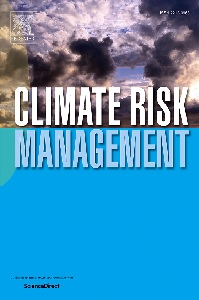Good data are not enough: Understanding limited information use for climate risk and food security management in Guatemala
Climate extremes are one of the main drivers of acute food insecurity. In Guatemala, acute food insecurity reaches alarming levels when the usual dry period during the bimodal rainy seasons is extended or starts earlier than expected. Drought has a slow-onset which theoretically leaves sufficient lead-time for addressing impacts on food security. In practice, emergency response to drought is often reactive and arrives late, starting when the crisis is already evolving. Climate services and food security information systems are key ingredients for integrated climate risk and food security management worldwide. In Guatemala, stakeholders broadly agree on the usefulness of this type of information for decision-making and direct significant efforts towards improving information availability and quality. But the impact of agro-climatic and food security information on decisions is ad hoc or not systematic. Through a mix of qualitative, ethnographic, and participatory methods, we investigated why this situation occurs. We found that different aspects lead to this phenomenon: the impact of drought on food security is mediated by different socio-economic, political, and institutional factors that tend to differ strongly between regions or even communities across the country. This puts special requirements on information provision for decision-making. Information use patterns can be explained by technical, data-related aspects as reliability, timeliness, or accessibility. But only by considering the institutional and organizational context we get a complete understanding on what frames the information-use patterns in climate and food security management in Guatemala. Our research shows that investments in technical aspects of data provision and infrastructure for increased climate and food security management need to address institutional and organizational challenges in order to be effective.

